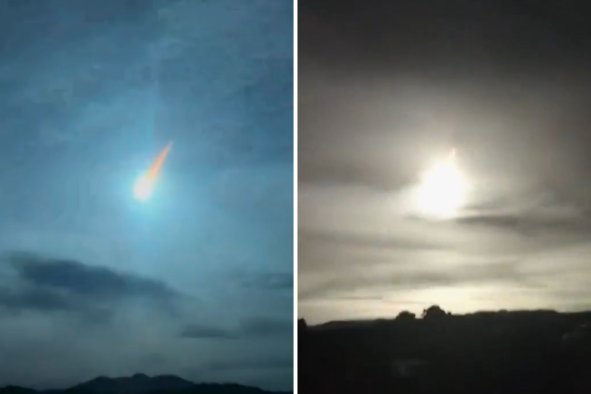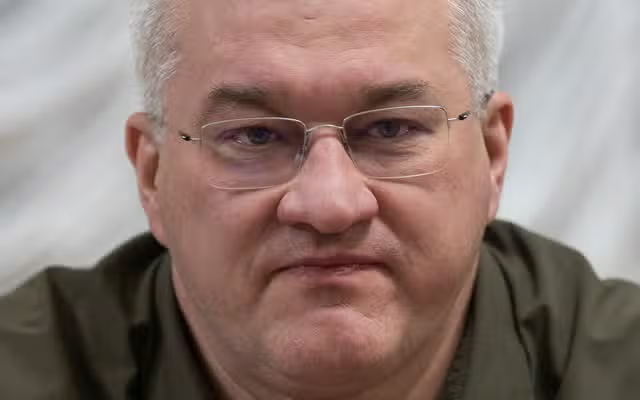Moscow and Beijing lashed out at Taiwanese President Lai Ching-te after he said China would reclaim land lost to Russia if its territorial concerns were driving its claim over Taiwan.
"In a recent interview on Taiwanese TV program The View with Catherine Chang, Lai said China's bid to annex is driven not by territorial integrity as Beijing claims but by ambitions to alter the "rules-based world order."
China claims Taiwan as its territory although the Chinese Communist Party (CCP) government has never ruled there. Beijing maintains eventual unification with Taiwan is necessary for its development and has not ruled out the use of force to achieve this goal.
He pointed to mid-19th-century treaties that saw China's Qing Dynasty give up large tracts of territory in the northeastern region of Manchuria to Tsarist Russia. He quipped that China should take back this land if it is genuinely motivated by territorial concerns, particularly given Russia's weakened state.
The ceded territory was for decades a bone of contention in Beijing, with CCP founder Mao Zedong once calling it an "unsettled bill. Tensions boiled into skirmishes along the neighbors' frontier in 1969.
Russian Foreign Ministry Spokesperson Maria Zakharova on Tuesday criticized Lai over his statement. "What some fringe politicians obsessed with revanchism think about this, someone else can worry about, but we won't," the state-owned news agency TASS quoted her as saying.
The spokesperson pointed out that China and Russia had settled the border in a 2004 agreement and stressed that Moscow backs Beijing's claim over Taiwan.
Zakharova said Lai is "being pushed towards separatism by the Americans." She added that he should focus more on attention to Taiwan's economy and "demonstrate a constructive approach to the Chinese leadership's proposal of a peaceful reunification with mainland China."
"We are confident that our friends in Beijing share the same position," she went on.
The United States, like most countries, does not have official diplomatic relations with the island democracy, though it does maintain close ties with Taipei through a de facto embassy. Washington is also Taiwan's largest supplier of arms, and China has for decades condemned these weapons sales as violations of its sovereignty.
Though China did not respond to Lai's Russia remark directly, it put out a statement Tuesday blasting Lai, whom it views as a separatist.
The Taiwan Affairs Office (TAO), a Chinese department responsible for cross-strait relations with Taiwan and promoting Beijing's unification agenda, said Lai was "making cross-strait relations increasingly complex and dangerous."
The TAO described Lai's rhetoric during his first 100 days as president as a "war of cognition and public opinion" geared toward an island-wide consensus on Taiwan independence and entrenching his Democratic Progressive Party's power.
China has threatened war if Taiwan were to issue an official declaration of independence. President Lai maintains Taiwan is already a sovereign country and therefore doesn't need to do so.
Polling in recent years has shown over three-quarters of Taiwanese support maintaining the status quo of de facto independence, some indefinitely and others eventually taking steps toward a declaration.
Newsweek reached out to the Chinese and Taiwanese foreign ministries with written requests for comment outside office hours.
The concessions to Russia have in recent years emerged as a hot topic among Chinese nationalists, some of whom argue that Moscow should return the lost territory.
Chinese officials have remained tight-lipped on the matter. Instead, they have Beijing's public messaging has celebrated the "no-limits" partners strengthening economic, diplomatic, and military ties, especially since President Vladimir Putin's 2022 invasion of Ukraine and the subsequent international isolation of Russia.
Disclaimer: The copyright of this article belongs to the original author. Reposting this article is solely for the purpose of information dissemination and does not constitute any investment advice. If there is any infringement, please contact us immediately. We will make corrections or deletions as necessary. Thank you.




